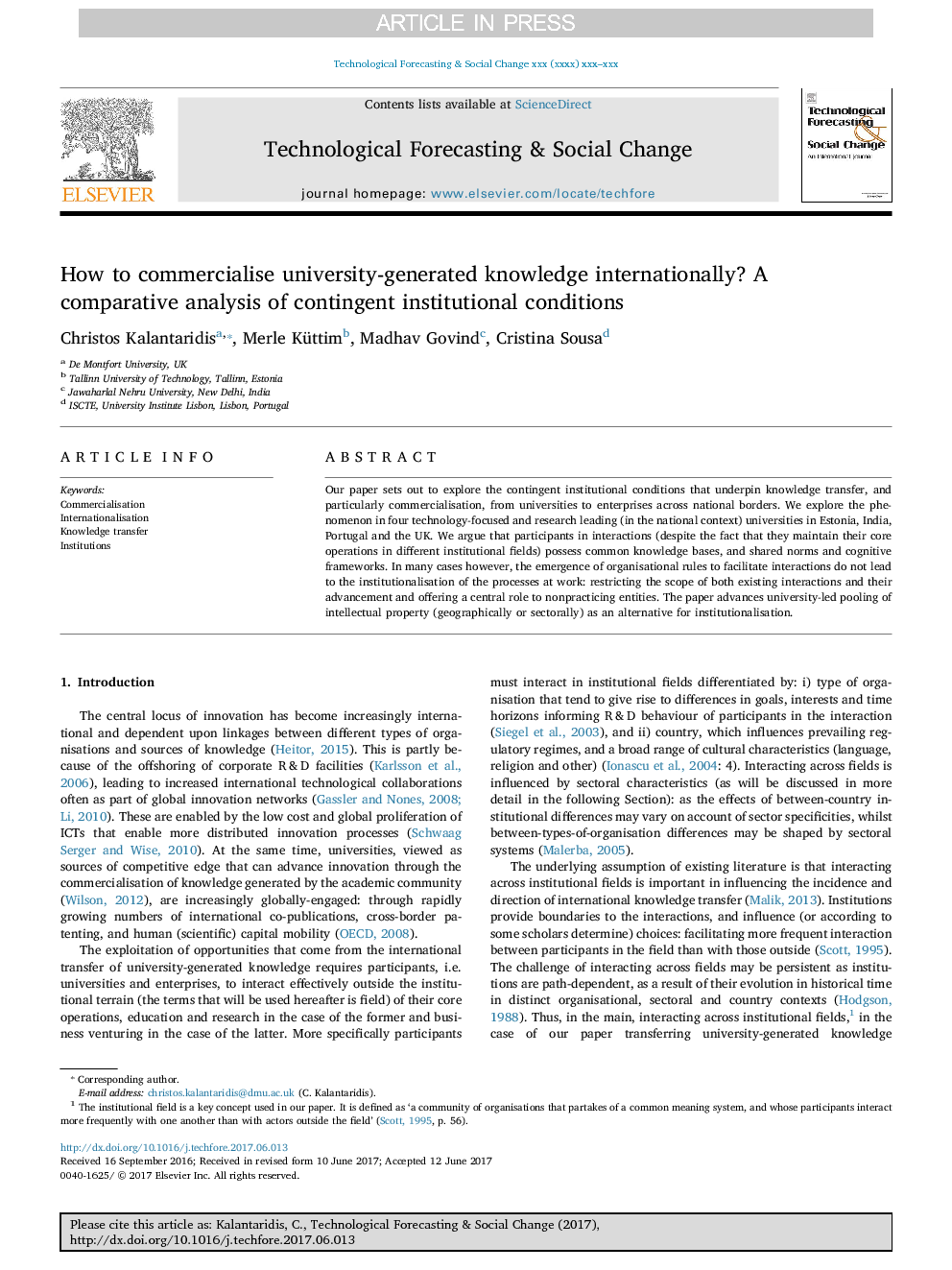ترجمه فارسی عنوان مقاله
چگونه تجارب دانش دانشگاهی در سطح بین المللی؟ تحلیل تطبیقی شرایط سازمانی احتمالی
عنوان انگلیسی
How to commercialise university-generated knowledge internationally? A comparative analysis of contingent institutional conditions
| کد مقاله | سال انتشار | تعداد صفحات مقاله انگلیسی |
|---|---|---|
| 103788 | 2017 | 10 صفحه PDF |
منبع

Publisher : Elsevier - Science Direct (الزویر - ساینس دایرکت)
Journal : Technological Forecasting and Social Change, Volume 123, October 2017, Pages 35-44
ترجمه کلمات کلیدی
بازاریابی، بین المللی، انتقال دانش، نهادها،
کلمات کلیدی انگلیسی
Commercialisation; Internationalisation; Knowledge transfer; Institutions;
ترجمه چکیده
مقاله ما برای بررسی شرایط سازمانی احتمالی که مبنای انتقال دانش و به ویژه تجاری سازی است، از دانشگاه ها به شرکت های بین مرزهای ملی است. ما این پدیده را در چهار فن آوری متمرکز و تحقیقاتی (در زمینه ملی) در استونی، هند، پرتغال و انگلستان بررسی می کنیم. ما استدلال می کنیم که شرکت کنندگان در تعاملات (علیرغم اینکه عملا فعالیت های اصلی خود را در زمینه های مختلف نهادی حفظ می کنند) دارای پایگاه های دانش مشترک و هنجارهای مشترک و چارچوب شناختی هستند. در بسیاری از موارد، ظهور قوانین سازمانی برای تسهیل تعاملات منجر به نهادینه سازی فرآیندها در کار نمی شود: محدود کردن دامنه تعاملات موجود و پیشرفت آنها و ارائه نقش مرکزی به نهادهای غیرواقعی. مقاله پیشرفتی را در زمینه مالکیت معنوی (به لحاظ جغرافیایی یا بخش بندی) به عنوان جایگزینی برای نهادینه سازی اداره می کند.

